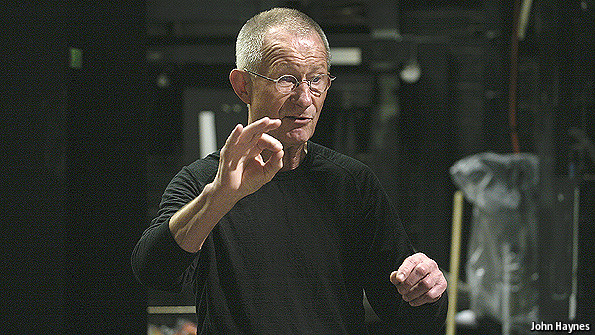Draff
5th–6th August, 2016
Trinity College Dublin
Keynote speakers:
Mark Nixon (University of Reading)
Dirk Van Hulle (Universiteit Antwerpen)
Call For Papers
Deadline for abstracts: 15th November, 2015
‘I don’t suppose many people know what “Draff” is, but if they look it up, they will be put off.’
Charles Prentice to Samuel Beckett (25th September, 1933)
As suggested by his original title for More Pricks Than Kicks (1934), and proved by the pochades, roughs, foirades, and (un)abandoned works of his mature œuvre, works often presented by their author as being no more than the run-off from the creative process, Beckett was anything but put off by draff. The same can surely be said of the scholars who have long devoted themselves to studying Beckett’s aesthetic engagement with the seemingly worthless.
In recent decades, however, Beckett Studies’ fascination with the residual has taken a much more literal meaning as the field, as well as its perception of Beckett and his art, has been reshaped by unprecedented access to the refuse, dregs, and lees of a voluminous archive, as well as the blackened pages of forgotten diaries and private correspondence. Despite, or perhaps because of, this flood of fresh effluvia, however, particular aspects of, and questions pertaining to, Beckett’s canon have been left unexamined, understudied, or wholly ignored.
Taking place next year in Trinity College Dublin, two decades after Damned to Fame (1996) opened a new chapter in Beckett scholarship, this bilingual conference invites proposals for 20-minute papers, in English or French, from prospective delegates who, sharing Beckett’s conviction in the value of what is left behind, are keen to pick through the ends and odds of Beckett Studies:
- Why, for instance, does Beckett’s poetry continue to attract so little critical attention?
- The nature of Beckett’s relation to Joyce and Proust has provoked much debate, but what are we to make of Beckett’s lesser-studied literary influences (e.g. Burton, Camus, Dostoevsky, and Hölderlin)?
- What are the correspondences between Beckett’s writing and the lesser-studied cultural and political spaces in which he lived and worked, such as France during the Franco-Algerian war?
- As we deepen our awareness of the role played by the visual arts in Beckett’s work, what might that same work have owed to his keen ear for music and his love of certain composers (e.g. Beethoven’s pauses, Schubert’s Lieder)?
- At a time of increasing interest in the bilingual Beckett, what was the role of Beckett’s lesser-known languages (e.g. German, Latin, Spanish) and, as we come to a better knowledge of Beckett’s own work as a translator, what might there be to gain in examining how Beckett’s art has been reimagined by those translators – and performers – who have made his words heard in languages he himself did not speak (e.g. Chinese, Dutch, Polish)?
- With the approaching publication of the German Diaries and the final volume of Beckett’s letters, to what uses can and should scholars put the inestimable trove of material represented by the biographic archive?
- How might the publication of such (auto)biographic material affect our appreciation of Beckett’s canons – the published, the ‘grey’, and the emerging? Where within this continuum should we situate the work he consigned to the wastepaper basket or, indeed, the ‘old shit’ he allowed to be republished?
Abstracts of no more than 300 words, in English or French, as well as a short bio of no more than 150 words, should be sent to conference organisers Stephen Stacey and James Little at draff2016@gmail.com no later than 15th November 2015. Whilst prospective delegates are encouraged to consider those topics outlined above, proposals for papers addressing any heretofore under-analysed aspect of Beckett’s ‘literary waste’ are warmly welcomed for this two-day conference, during which both Beckett’s and Beckett Studies’ disjecta membra will be dragged into the ‘pestiferous sunlight’ of scholarly discourse.
For further information and conference updates, please consult the conference website: draff2016.wordpress.com. There you will also find information on the association between this conference and the Samuel Beckett Summer School (www.beckettsummerschool.com), taking place in Trinity College Dublin from 8th–12th August, 2016.




